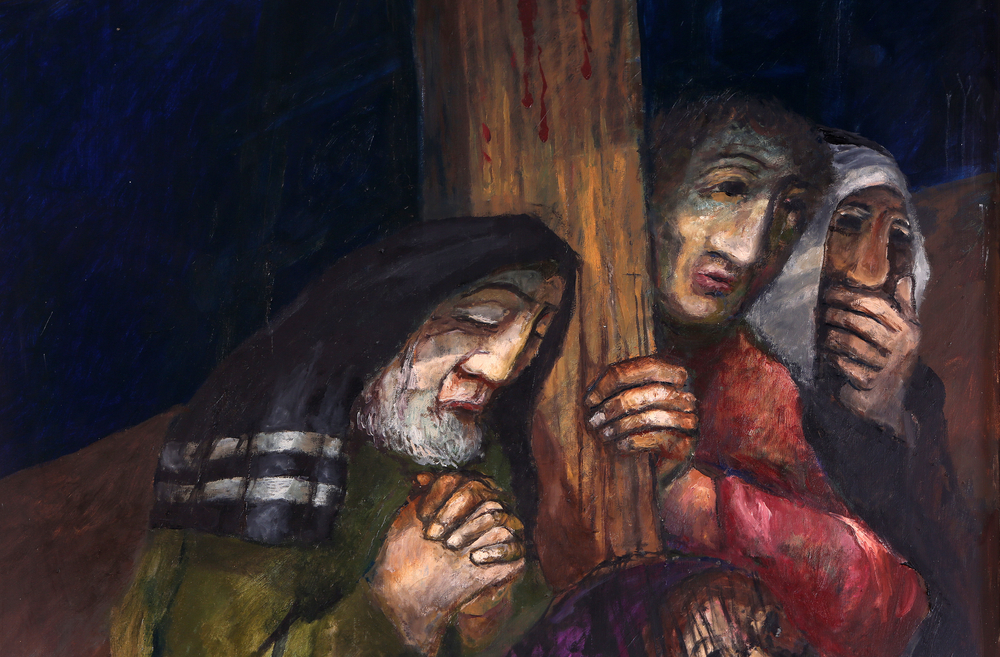This post is part of an ongoing series in the study of John we are doing during January. Subscribe to the blog for daily updates in the Bible Study posts. Subscribe to the podcasts to hear our discussion of the book of John throughout this month. Join us in your daily devotions as we travel through this fascinating account of the life of Christ.
***
Immediately following the final verses in chapter 2, where we learn that Jesus knew what was in man and did not entrust Himself to man, we come to John 3 and find the encounter between Jesus and Nicodemus. This is a rich passage that includes one of the most famous verses in the Bible.
For God so loved the world that He gave His only begotten Son, that whoever believes in Him should not perish but have everlasting life. John 3:16 (NKJV)
The encounter between a religious ruler of Israel and Christ is bookended by two distinct passages that tell us a lot about what unfolded here.
Part 1 tells us: There was a man of the Pharisees named Nicodemus, a ruler of the Jews. This man came to Jesus by night John 3:1-2.
Part 2 is the insight Jesus gives Nicodemus, the inquirer: For everyone practicing evil hates the light and does not come to the light, lest his deeds should be exposed. But he who does the truth comes to the light, that his deeds may be clearly seen, that they have been done in God.” John 3:20-21.
In effect, Jesus is pointing Nicodemus’s eyes to his failings demonstrated in the very manner in which the religious leader approached Christ. He came to Jesus at night because he wanted to stay hidden. He did not want to expose his interest or curiosity.
Nicodemus was not among the religious leaders who routinely cursed and ridiculed Jesus. In chapter 7 of John, we find Nicodemus dissuading the religious leaders’ rush to judgment of Jesus. In chapter 19, Nicodemus is among the burial party of Jesus, bringing a mixture of myrrh and aloes for the process. Nicodemus appears to have been a seeker but possibly not a finder of the truth of God. We never hear about him again after the burial of Jesus.
A New Paradigm
When he approaches Jesus in John 3:2, Nicodemus refers to Christ as a teacher. That is the furthest boundaries of Nicodemus’s perception of who Jesus could be. Although that judgment is far beyond what many of the other religious leaders of the day perceived, it still was not enough. Jesus was not merely a teacher. He was the Son of God ushering in a new age of the Spirit and Kingdom of God.
Jesus answered and said to him, “Most assuredly, I say to you, unless one is born again, he cannot see the kingdom of God.” John 3:3 (NKJV)
The word see in this verse comes from a Greek word meaning to see, discern, perceive, experience with the eyes. We all have built-in boundaries to our perception of life and the world around us. Our sight of the world is limited. The nature of our experience, culture, and many other factors define these perceptions. We cannot see or reasonably consider beyond those limitations. These flesh-based factors have taught us how to see or discern what is real and trustworthy.
The philosopher and physicist Thomas Kuhn described an event known as a paradigm shift in which we undergo a fundamental shift in our perceptions and underlying assumptions. Jesus described this 2,000 years earlier as being born again. When the furthest boundaries of our sight cannot contain the reality of the Kingdom of God, there is a requirement that we be born again. That correct perception and sight are crucial to our entrance into the Kingdom of God.
Jesus answered, “Most assuredly, I say to you, unless one is born of water and the Spirit, he cannot enter the kingdom of God. John 3:5 (NKJV)
Today we have encoded the phrase born again with so many evangelistic interpretations that, ironically, we sometimes need a paradigm shift to understand that Jesus was actually talking about sight and perception. The well-intending religious leader Nicodemus could not see who Christ was because there were limits on his perceptions.
To be born again is not a singular experience. True, when we confess our sins and invite Christ into our hearts, we are committing to the born again experience. Still, even after that, believers require continuous upgrading of our perceptions and paradigms as we grow in the standards and realities of the Kingdom of God.
That Which Is Flesh and That Which is Spirit
That which is born of the flesh is flesh, and that which is born of the Spirit is spirit. John 3:6 (NKJV)
The beginning of the new birth or new sight experience arrives with recognizing our frailty and need. There are two realities at work in our lives, the reality of the flesh and the reality of the spirit. According to John 6:63, only the spirit leads to life. The flesh brings no benefit at all. To that end, all perceptions, paradigms, and understanding born of the flesh are limited in their very nature.
Culture, race, biology, opinion, politics, and the many factors that contribute to forming our perspectives of life and this world – profit nothing. These factors are not inherently evil and may help guide us through life to an extent. But when these flesh-based factors restrict our vision of the Kingdom of God – they become the enemies of righteousness.
Nicodemus was a ruler among the Jews, a religious leader, a seeker of truth, and a man who inquired of Jesus for the truth. But all these attributes that operated as definers to his perception also served as boundaries to his sight. He stood before the Son of God but could only see a teacher.
We are all in need of constant upgrading to our perceptions. The life of faith in Christ is a journey of consistent discovery of new revelations of Him to our hearts. These revelations occur by being born again, and the born again experience is ultimately a paradigm shift to empower us toward new sight of Christ.
Subscribe to the blog as we continue our walk through the book of John tomorrow.
[email-subscribers-form id=”2″]
Be sure to verify by email when you subscribe!
Find the podcast devotionals for this complete series here.





What do you think?
Show comments / Leave a comment